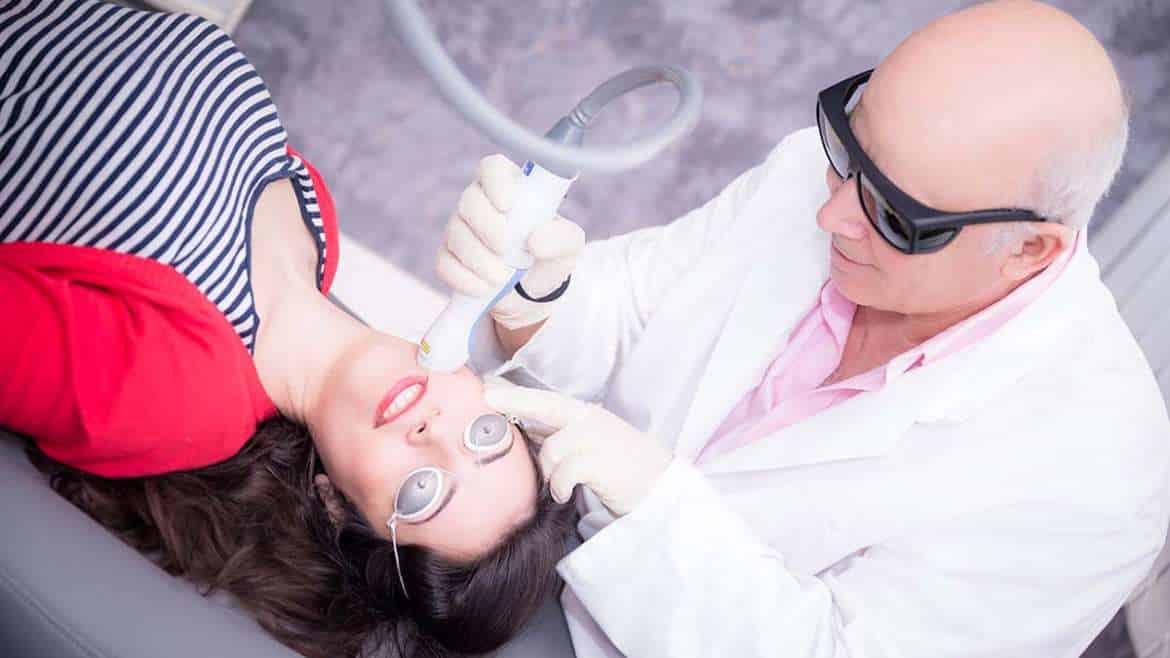Aestheticians and dermatologists are two types of experts you can consult if you want to resolve a skincare issue. Although individuals refer to these professionals as skin care specialists, they differ in their areas of expertise and the services they provide.
An aesthetician offers services that improve your skin’s external appearance. In contrast, a dermatologist specializes in the health of your skin.
Dermatologists are medical professionals skilled in diagnosing and treating various skin conditions. For instance, they might give prescriptions for medications or carry out in-office procedures like cyst and growth removal or skin cancer biopsies.
On the other hand, aestheticians usually offer treatments like facials and light chemical peels that focus on the skin’s surface.
In some cases, certified physicians can provide dermatology and aesthetician treatments. For example, you may visit Mark Solomon MD’s official website to see how a plastic surgeon can deliver various skin treatments and enhancements.
Knowing the distinctions between dermatologists and estheticians can help you choose the best expert to address your skin problems.
How to Decide Between a Dermatologist and an Aesthetician
Licensed specialists who can assist with your skincare requirements include dermatologists and estheticians. In most cases, deciding between these professionals depends on your skin concerns.
In general, you should see a dermatologist for any medical problems, such as:
- Acne
- Moles
- Dryness, rashes, or skin discoloration
- Lesions
- Eczema
- Psoriasis
- Skin cancer symptoms
If you want to manage your skin’s appearance and you don’t have any skin disease symptoms, an esthetician can offer:
- Facials
- Microdermabrasion
- Other superficial treatments, such as laser peels
However, most states only authorize dermatologists to administer more invasive procedures like dermal fillers, Botox, and scar revision surgery.
Additional distinctions to consider include:
- Laser treatments: In many regions, only dermatologists can administer laser therapy. However, some regions permit aestheticians to carry out particular laser operations.
- Micro-needling: Most states categorize this service as a medical treatment, which is why aestheticians do not typically implement it. In some areas, estheticians who are working in healthcare settings may perform micro-needling under the guidance of a licensed physician.
- Peels: Aestheticians can do light peels, such as ones containing alpha hydroxy acids. In some regions, they can also provide mild peels with glycolic acid.
Only dermatologists can do thorough peels that reach the middle layer of skin, such as trichloroacetic acid or phenol peels.
When battling acne, skin pigmentation, or chronic dryness, you should usually consult a dermatologist first. They can provide a diagnosis and assist in treating skin conditions by recommending drugs or medical procedures.
In some cases, dermatologists may direct you to an aesthetician who may provide treatments and assist you in developing a skin care program to preserve your optimal skin health.
What Is an Aesthetician?
Aestheticians are specialists who provide treatments for the skin’s external layers. They may advise you on how to care for and improve the appearance of your skin.
However, aestheticians do not have medical training. The lack of specific credentials means these professionals do not typically perform the following tasks:
- Conduct any intrusive treatments, such as injectables and fillers
- Diagnose skin conditions
- Prescribe medications
In some places, aestheticians may perform injectables and other procedures under the supervision of a dermatologist.
An esthetician can provide the following services:
- Hair removal measures like threading, waxing, and sugaring
- Eyelash extensions and eyebrow tinting
- Microdermabrasion
- Masks, body scrubs, and wraps
- Facials
- Superficial chemical peels
Moreover, aestheticians typically work at day spas or salons.
However, medical aestheticians may operate with dermatologists or cosmetic surgeons in clinical environments. These specialists may offer treatments, such as:
- Tattoo removal
- Deeper chemical peels
- Pre-and post-surgical skincare
- Laser hair removal (under a doctor’s supervision)
There is no formal licensure required to become a medical esthetician. However, these professionals often pursue additional education and training for the procedures they will be conducting.
What Is a Dermatologist?
A dermatologist is a physician who concentrates on the skin, hair, nails, and mucous membranes. They can identify and treat over 3,000 different illnesses.
Dermatologists can:
- Carry out diagnostic and preventative examinations
- Provide skin condition consultation and education
- Treat skin disorders
Although many dermatologists conduct medical and cosmetic operations, some may focus only on one or the other.
The health of your skin is often the primary concern of a dermatologist specializing in medical procedures. They are capable of making diagnoses for various skin ailments and conditions, such as:
- Skin cancer
- Contact dermatitis
- Nail fungus
- Alopecia
- Dandruff
- Allergic reactions
- Subcutaneous growths
- Rashes
- Eczema
- Psoriasis
- Warts
- Scalp and hair disorders
On the other hand, cosmetic dermatologists may concentrate on providing treatments that, while not strictly necessary for health, may help you achieve better-looking skin.
For instance, if you want to lessen the look of fine lines and wrinkles or sunspots, you can ask a cosmetic dermatologist’s expert advice. Other procedures these skin specialists offer may include:
- Microneedling
- Chemical peels
- Laser resurfacing
- Dermal fillers
- Botox
- Laser hair removal
Moreover, dermatologists can provide prescription drugs to treat acne. However, a dermatologist specializing in aesthetic treatments like laser resurfacing and deep peels can assist you in looking into your choices for minimizing the visibility of acne scars.
Additionally, all dermatologists are qualified to do both medical and cosmetic procedures. Furthermore, where these specialists practice is another significant aspect of their jobs.
For example, only dermatologists specializing in medical procedures often work for healthcare institutions or hospitals.
Dermatologists frequently operate at specialist clinics and individual offices. Medical spas may hire dermatologists with expertise in aesthetic operations.
Reference
1. Why Choose a Board-Certified Dermatologist?





